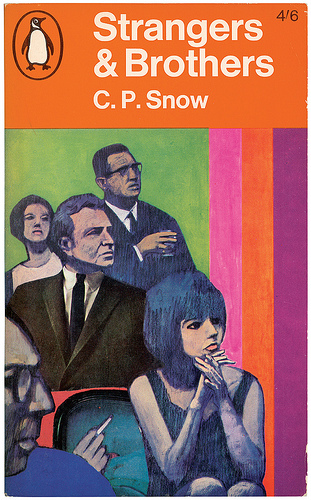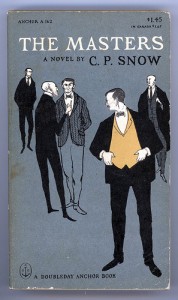I’ve thought about The Masters quite a bit since then, and I’ve wanted to re-read it. I’ve read two of the other books in the series, but I thought it was time to go back and start from the beginning, to see if the whole edifice stands up. More posts to come here about the first book: originally published with the title the series eventually took, and then republished as the Victorian-sounding George Passant.
Monthly Archives: April 2013
News from the Econo-Genetic Divide
In which it’s revealed that TED, SXSW and suchlike are really all breeding experiments designed to generate a race of Master Hipsters to benevolently rule us all.
“Dan Gould, 35, who has attended Renaissance Weekends, TED, EG (Entertainment Gathering) and a number of other conferences said they are self-selecting for people who have big ideas and want to change the world.
“You’re not going to easily find someone like that on OkCupid or in a bar,” he said. “You have people who have similar values and who care about the same sorts of things.”
Mr. Gould, a founder of the video sharing site Chill.com, had heard of couples who met at one conference or another, but he never gave it much thought — until he met a woman at TED. They happened to be seated near each other during a talk and, as is common at TED, they continued to bump into each other throughout the four-day conference.”
…
“As Kathryn Irwin, who first attended SXSW in 1994 and hasn’t missed a year since 2000, put it: “There’s been some babies, there’s been a lot of dating, and a lot of hooking up.” Not necessarily in that order. After splitting with her husband in 2009, she too jumped into the SXSW dating pool. “I was like ‘Oh my gosh, there’s so many beautiful men,’ ” she said.”



